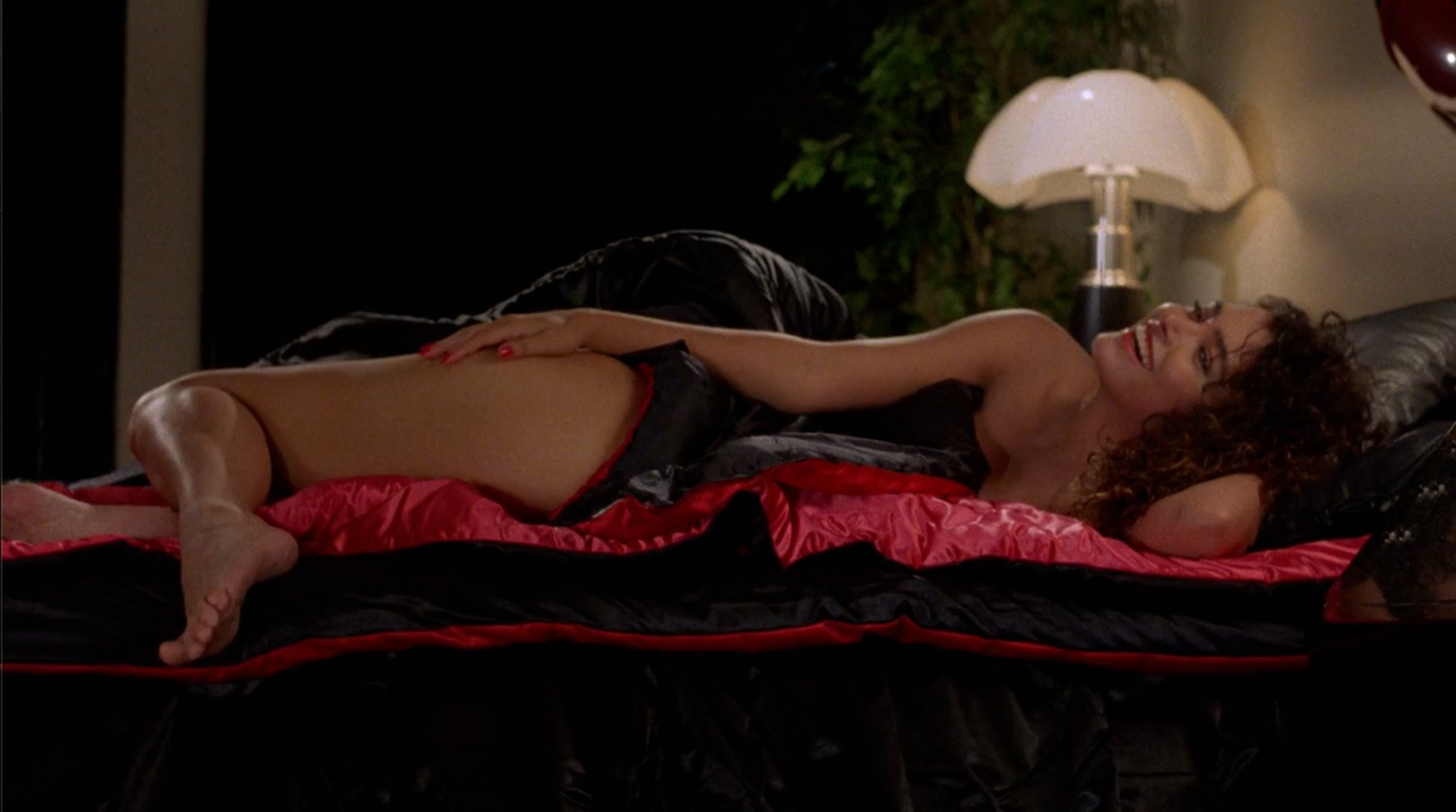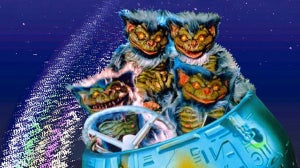
High school popularity, a loving girlfriend, and a life of luxury in Beverly Hills – teenager Bill lives a charmed life full of all the amenities and luxuries his family’s perfectly privileged status can provide. Yet, something is missing. Bill has never quite felt as though he truly fits in with his family. When bodies begin to pile up, Bill discovers his family has more than a few skeletons in their collective closet. Worse still, he discovers he himself is being prepared for an audience with a mysterious, sinister Society to which his family belongs…
“Eat-the-rich” cinema has become increasingly popular in the last decade or so, with Bong Joon-ho’s Snowpiercer (2013) and Parasite (2019), Rian Johnson’s Knives Out (2019) and Glass Onion (2022), and Mark Mylod’s The Menu (2022) all exploring the cathartic notion of the rich getting what’s coming to them to varyingly severe degrees. The concept has never been quite so literally explored – or rather, inverted – as in Brian Yuzna’s Society (1989), which posits the notion that the opulent aren’t merely figuratively or ideologically monstrous – in Yuzna’s eyes, the rich are literal monsters: Rob Bottin-eqsue fleshy abhorrations that absorb the bodies of the poor in-between rounds of tennis and lazy afternoons on yachts.
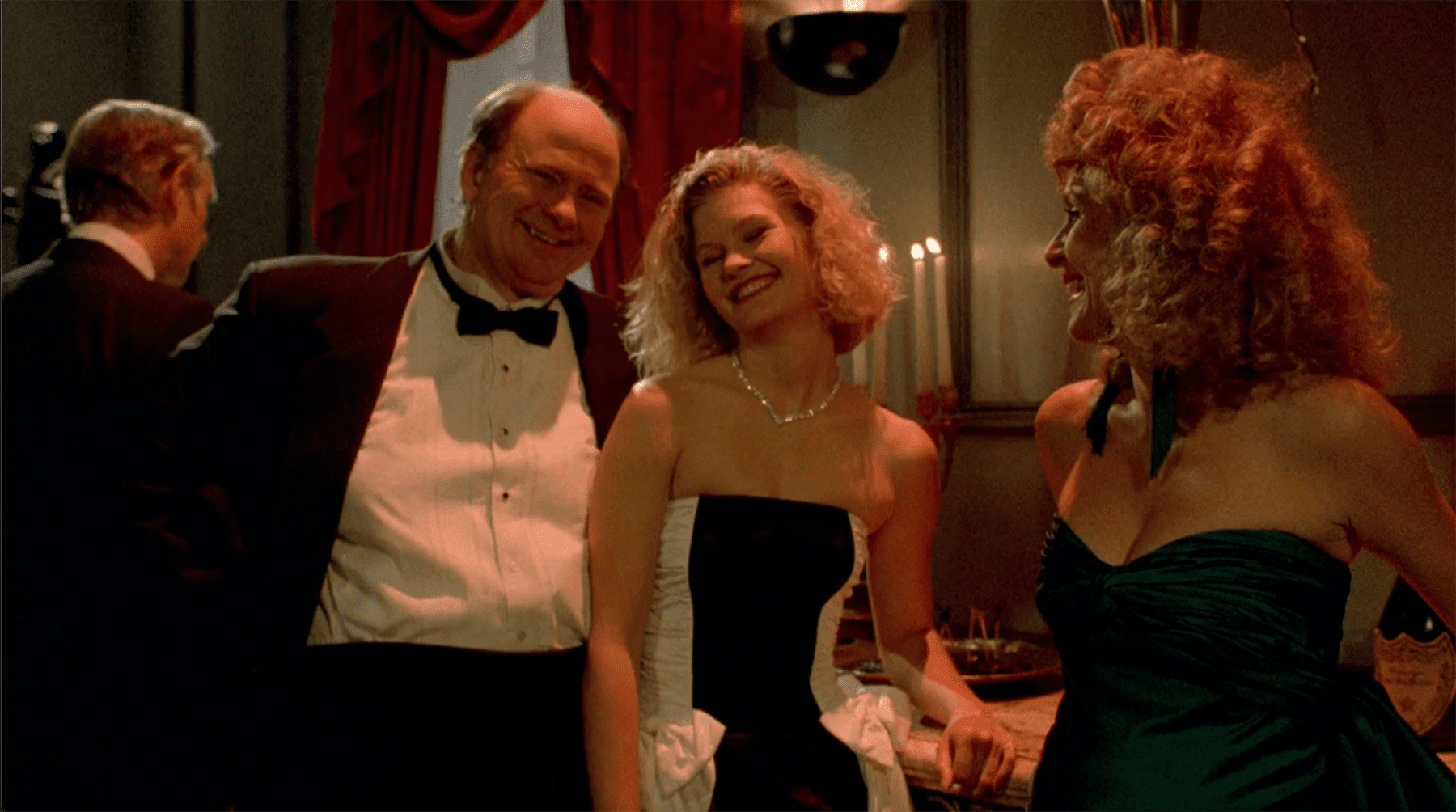
Yuzna – cult hero director of Bride of Re-Animator (1990), Silent Night, Deadly Night 4: Initiation (1999), Return of the Living Dead 3 (1993), the Dentist duology (’96 and ’98), and more – intended Society to reflect the justifiably paranoid worldview he held at the time of production. In the decades since the film’s release, Yuzna’s mistrust has proven increasingly justified: worker exploitation, class division, and manipulation of information and resources are more severe and urgent issues than ever. In a 2022 interview at the Bucheon International Fantastic Film Festival, Yuzna reflected on the appropriately unsubtle messaging of his film:
“When Bill says, ‘You’re aliens,’ they’re like, ‘No, no, we’ve been here as long as you have. We’re a different species from you, we’re a different class.’ The joke is that the class is the highest difference, not even species. So that’s why they say ‘You can’t join society. You have to be born into the society.’”
Bill (played by the fabulously named Billy Warlock) represents the perennial black sheep of any wealthy family – sure, he shares a surname and the excesses of his family’s privilege, but he’ll never be one of them. Bill’s “family” and the Society they belong to represent not only a class divide, but a generational one: Bill is a yuppie content to live comfortably and uses wealth as a means to an easy, carefree life. His adoptive family, on the other hand, represent “old money” sensibilities and the use of wealth to preserve an outmoded way of life – and staying at the top of the societal (and in Society’s case, literal) pecking order. Wealth creates conflict and division even within its gilded ranks, and sooner or later one sect inevitably consumes the other – it’s simply a matter of which party is the more resourceful.
Society was the first of many collaborations between Yuzna and Screaming Mad George, director of The Guyver (1991) and the legendary special effects of Big Trouble in Little China (1986), Predator (1987), Tokyo: The Last War (1989), and more. The grotesque ritual of “Shunting” that comprises the finale of Society – in which the alien elite discard their human disguises and reveal themselves as icky, sticky mounds of incestuous, orgy-craving, poor-consuming flesh – is the outrageous brainchild of Yuzna’s damning view of the wealthy and George’s signature brand of extreme body horror. The two would go on to collaborate further on Bride of Re-Animator, Beyond Re-Animator (2003), the anthology horror Necronomicon (1993, alongside Gamera trilogy director Shusuke Kaneko), and more.
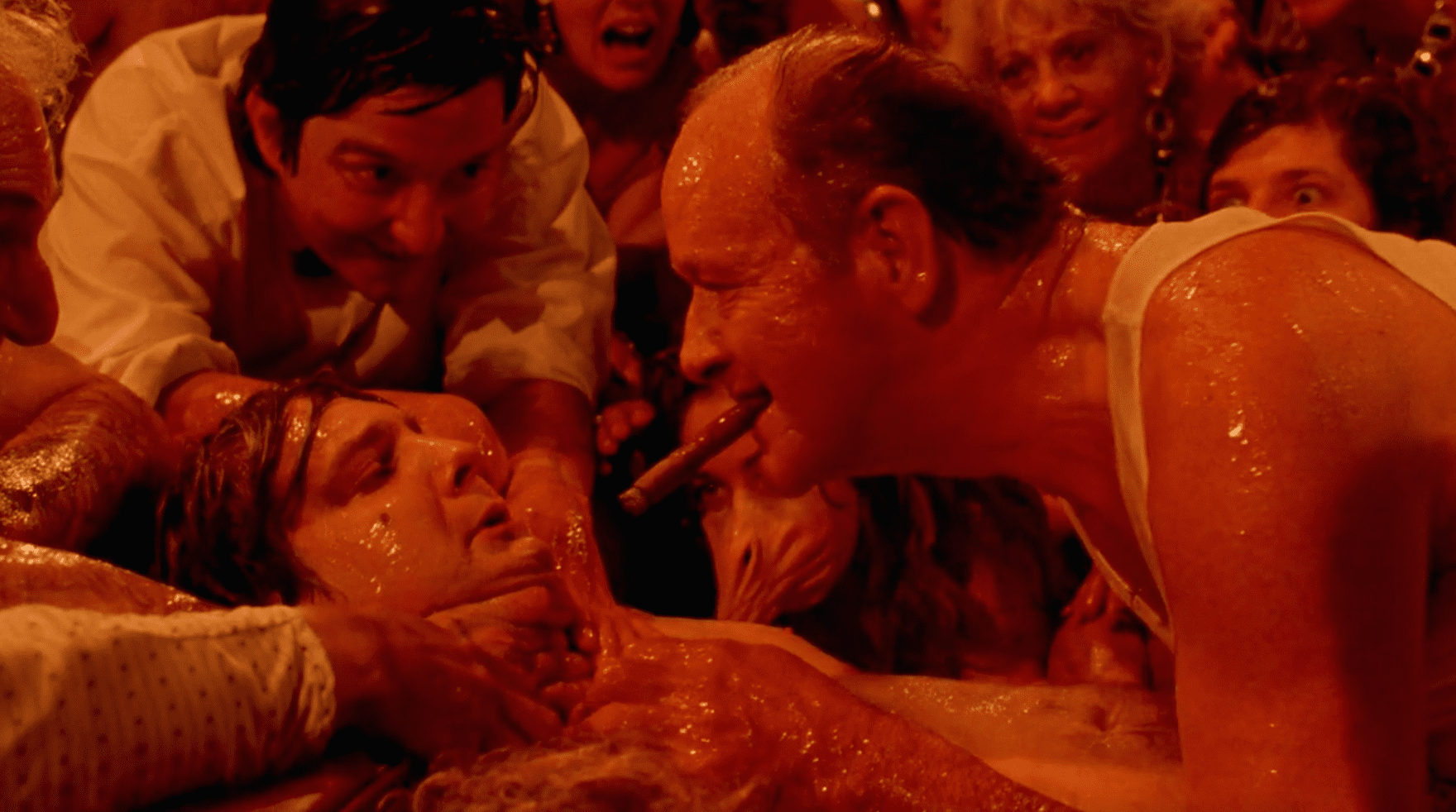
Yuzna and Screaming Mad George were connected through Society’s Japanese financiers Wild Street, and the two immediately connected through a shared love of the surreal and grotesque – particularly the work of Salvador Dali, which would inform the ways the pair developed their phantastic concepts and ambitions for the film, particularly the carnal carnival of chaos that comprises the film’s exceptionally explicit climax. While the film’s imagery is among the most unforgettable in the history of body horror, even more terrifying than the physically monstrous and incestuously sickening nature of the Shunting is Bill’s realisation that all his paranoia and fears concerning his family and friends have been entirely justified – his suspicions are real, and he does not belong. His family are not his family, and he is simply a pawn in their monstrous ritual. In Yuzna’s own words:
“They don’t need to have people know who you are — just because you have a lot of money doesn’t make you society. You have to have the good breeding. It’s a course, it’s like a cartoon sci-fi version of what I think is the world is.”
The Shunters are correct – the yuppie Bill will never be one of their old money elite. However, this is what ultimately saves Bill – not only from the physical horror of being assimilated into the grotesque, fleshy mass of conjoined bodies, but also the existential threat of the spiritual and physical rot that wealth inevitably brings. Indeed, while those consumed by the Society are physically lost, the Shunters themselves cling to an outdated, inflexible model of power in order to remain controlling and influential, lest they find themselves overtaken and consumed by something newer, sleeker, and more efficient. Sound familiar?
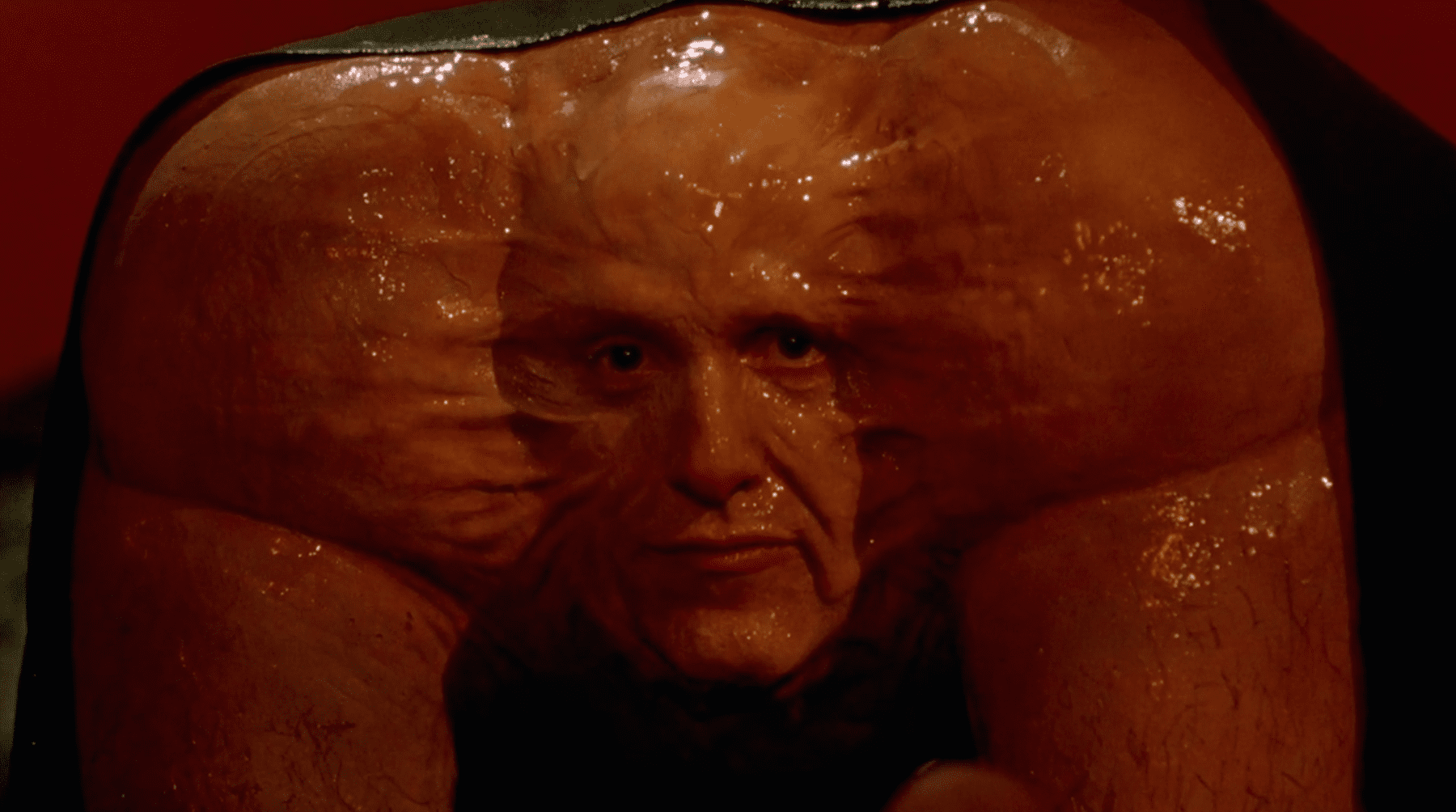
If Society’s social commentary strikes you as unsubtle, it’s doing its job. Growing increasingly and dishearteningly relevant in the decades since its release than was perhaps ever anticipated, Yuzna’s film remains one of the most tangible, visceral, and uncomfortable class satires ever committed to film. In our current era of worldwide wealth inequality even more extreme than that which Yuzna’s film portrays, Society’s gloriously transparent messaging is as chillingly potent and urgent as ever. Now more than ever and for the good of society, we must expose the rich, disregard their lies, and destroy their power; if not, they will consume us all – economically, spiritually, or otherwise.

